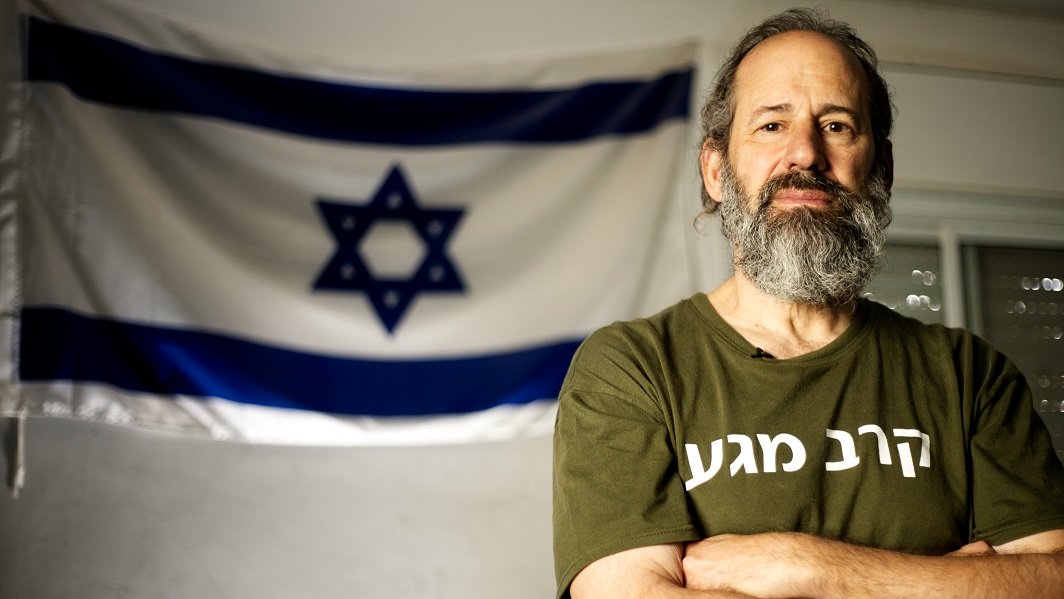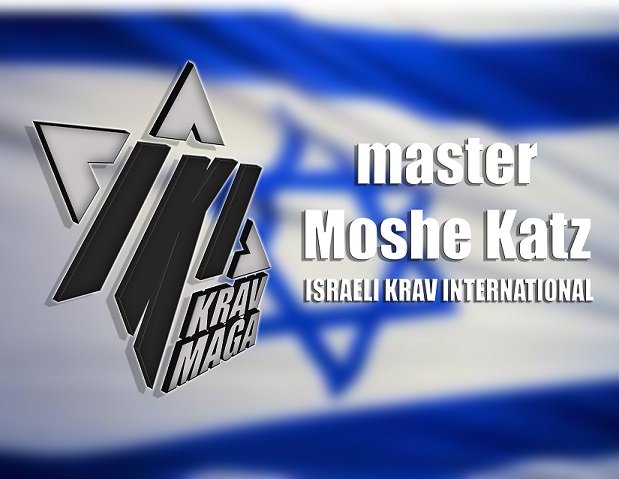- Home
- Krav Maga Blog
- Krav Instructors
- Train in Israel
- Tour Train Israel
- Krav Shop
- DVD
- Kickboxing
- IKI Near Me
- Seminars
- IKI Membership
- On-Line Training
- Krav Maga Training
- Testimonials
- History Krav Maga
- Instructors Page
- Past Blogs
- Spanish
- Italian
- Certification
- Contact
- Holland Seminar
- Vienna Seminar
- Poland Seminar
- Italy Seminar
- Belt Requirements
Stages of Understanding
BY MOSHE KATZ
CEO
ISRAELI KRAV INTERNATIONAL
June 29, 2025, Israel
Most of my role models for Krav Maga are not/were not Krav Maga instructors, most had nothing to do with any form of martial arts. Most were rabbis and teachers, and of course my dear parents, may they rest in peace. However, I have long believed that lessons from one aspect of life can be transferred to other aspects of life, and as my teacher, the late Prof. Amos Funkenstein said, you don't need to be a triangle to teach geometry.
And so, when I study the Talmud, written in Babylon close to 1,800 years ago, I often find valuable lessons for Krav Maga students and instructors. The other day I came across the following passage, "Rava said, One should always study the Torah first and meditate (ponder) it afterwards, as it is written, 'and the Torah of God is his desire', and later on 'and in his Torah he should ponder/delve'." (Tractate Avoda Zarah, page 19A)
Now the translation is not exact, this is written in Hebrew, and the words do not always translate easily to English, in addition the original meaning is often subject to debate. So I present two interpretations here which are not contradictory, but complementary. The first is; one should always study the basics first, and then, once he has covered the basics, he should delve into the matter deeper, or "Meditate" (Yehege in Hebrew). This means do not get hung up on every little detail as you are learning something new because you might get stuck and not continue to the next part. Better to just get the basic idea, the concept, cover the entire matter, and then come back and delve deeper into the matter.
In the first approach, a person might get stuck on one passage, or in Krav Maga, on one aspect of a technique. He will get stuck, become frustrated, and then never progress to the next step and thus, never really learn the technique. In the second approach as advocated by Rava in the Talmudic passage, you get the basic idea, the concept, the flow, and later on come back and revisit the technique and delve deeper.
There is a second interpretation of this Talmudic passage. The word interpreted as Ponder/delve into, is Yehege, which also means to speak, thus the passage would read, one should make oneself a master of a subject before discussing it.
Personally, I like both interpretations and find that together they teach a valuable lesson in training and teaching. First, we learn a technique, we don't stop after every step and ask questions...but what if....we don't discredit the technique before we fully understand it, we don't discuss it until we have trained in it for a while. After we have mastered it, then delve deeper into it, we "ponder" it, we test it out, we analyze it, we compare it, we contrast it. And after all that we can finally Yehege, discuss it with others on an intelligent level.
When we discuss matters that we don't understand, we come across as ignorant and foolish. I have long been an advocate of - you do not have a right to your own opinion, unlike the common saying, everyone has a right to their opinion. I don't feel I have a right to express an opinion on Quantum Physics, because I am not familiar enough with the topic. Here the Talmud is saying, before discussing a matter, make yourself a master of that matter.
In summary, if we take Rava's attitude concerning Krav Maga, it might be, First study the matter, get the general idea, don't get bogged down on one issue, don't get stuck at any point just because you have not fully understood it, move on and come back to it later. Once you have mastered a topic, a technique, then you can discuss it with others on an intelligent level.
Rava continues, "One should always study even though he is liable to forget and even if he does not fully understand what he is studying."
This is a concept that we have in Judaism that I am unaware of it existing in other cultures, the idea of study as worship. It is the idea that just as we pray, we must also study the holy scriptures, and the "benefit" has nothing to do with whether or not we understand the material. Thus, study in itself as an act of worship, and part of being Jewish. Thus, the culture develops that honors learning, and not only knowledge, and as Rava said, even if the student does not fully understand what he is studying at the moment. The result is a society that treasures studying. The result is a very educated people for we value the act of studying and not only the results. In a way, since are not so troubled by the results, the results are that we indeed achieve great results.
Let us now transfer this idea to Krav Maga. If we are obsessed with achievements, i.e. I must master the technique; this will hinder our progress. But if we say, train, just train and don't worry too much about whether your technique is perfect. You are being "rewarded" just for training. This will create an atmosphere of learning, of progress, and true progress will take place. If we say there is value in "time on the matt", just train and don't be too self-critical, just enjoy it, time will do its thing. Progress will take place.
So let's take Rava's educational advice from about 1,700 years ago in Babylon, he knew what he was talking about, let's train, be consistent, put in the time and not worry too much about how perfect our back spinning jump kick is. Just Do it! and the results will follow.
Rava - Abba ben Joseph bar Ḥama (c. 280 – 352 CE), who is exclusively referred to in the Talmud by the name Rava (רבא), was a Babylonian rabbi

Moshe Katz, 7th dan Black Belt, Israeli Krav Maga. Certified by Wingate Institute. Member Black Belt hall of fame, USA and Europe.
Understand the Israeli Fighting Mentality - Israel a Nation of Warriors by Moshe Katz

What is the cultural background of Krav Maga? What makes it unique? What makes the Israeli military so effective? Why are Israeli security systems used all over the world?
What are the Biblical origins of Krav Maga and who was the first Krav Maga instructor?
What weapons and military strategies did our Biblical ancestors use?
How has Krav Maga developed in Israel and what are its goals?
All that and more in this unique book.
Start Your REAL Training TODAY
Or is someone coming to save you?
IKI Krav Maga online distance training - Leading to ranks and certification.
Tour and Train Israel Experience
Personal Training - If you are interested in personal Krav Maga training please contact us on the form below.
